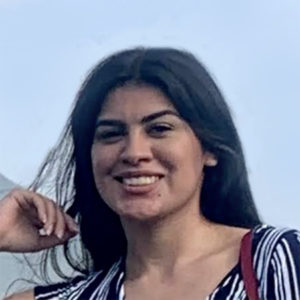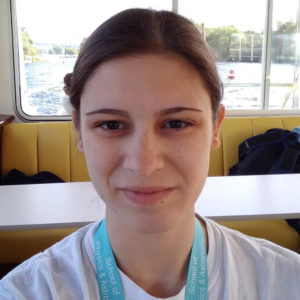During the summer of 2021, 13 interns from UC Merced spent eight weeks working virtually with JGI mentors to investigate rigorous research projects, hone science presentation skills, and participate in professional development enrichment activities.
For some students in the 2021 cohort, this was their first internship experience, while others further along in their academic career enjoyed the chance to develop new skills needed for their PhD research. And for the first time in this program’s history, two interns returned to re-engage with their mentors from the previous year and continue working on their research project!
The JGI-UC Merced internship program was founded in 2014 with the goal of inspiring students to embark on a career in genomics and to help foster a diverse future workforce in science. To learn more about each intern’s experience during their internship, check out their stories, told through print narratives, videos, a podcast episode, and presentations below.
Narratives
|
“Blurring the Line Between Plasmids and Phages“ Mentor: Stephen Nayfach |
“Polymorphisms Created by Transposable Elements“ Mentors: Li Lei and |
“Evolution of the Mitochondria Internship“ Mentors: Frederik Schulz and Juan C. Villada |
“Cross Species Integration of Single Cell Transcriptomes“ Mentors: Margot Bezrutczyk and Ben Cole |
Videos
Three of the interns presented at the 2021 JGI Annual Meeting – go here to watch them.
|
“Exploring and VisualizingP. hallii Mutant Library“ Mentors: Matt Mingay |
“Evaluation of Binning Tools for Microbial Eukaryotes in Metagenomes“ Mentors: Igor Grigoriev |
“Functional exploration of Phage Impact on Microbial Root“ Mentor: Jonelle Basso |
|
“Cross Species Comparison of Plant Single-cell Transcriptomes of Rice and Arabidopsis Roots“ Mentors: Margot Bezrutczyk |
“Making Big Data Metagenomic Clustering Scalable“ Mentors: Zhong Wang |
Genome Insider Episode
Check out the podcast episode, “Dispatches from the JGI Interns.”
|
“Cataloging Lineage Specific Conserved Genes in Giant Viruses“ Mentor: Frederik Schulz |
“Pan-genome Graphs: Approaches for Complete Categorization of Genomic Variations“ Mentor: G. Albert Wu |
Presentations
|
“Comparative and Functional Mentor: Shwetha Acharya |
“Implementing a Scalable Mentors: Bryce Foster and Zhong Wang |




 Beryl Arinda
Beryl Arinda






